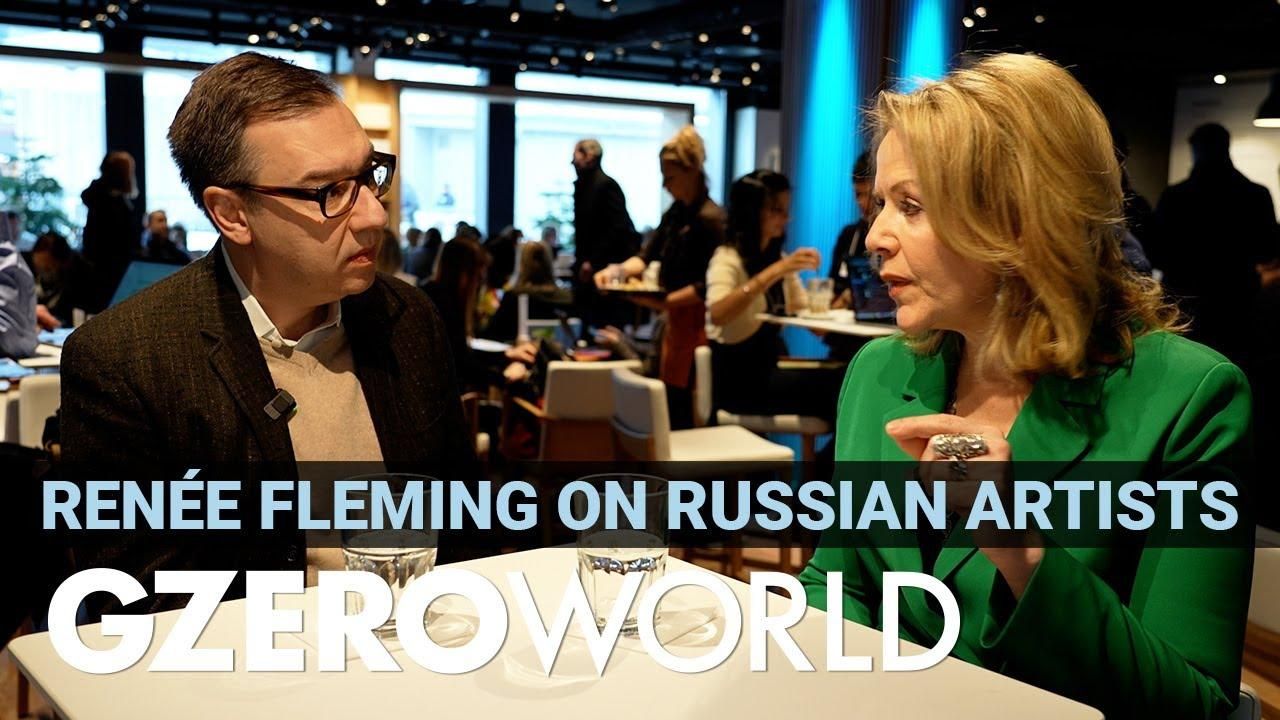Opera legend Renée Fleming on how Russia's war in Ukraine has impacted classical music

Should Russian artists be blamed for Vladimir Putin’s war in Ukraine? In the weeks following the invasion, big stars like Metropolitan Opera star soprano Anna Netrebko or Berlin Philharmonic Orchestra director Valery Gergiev lost their jobs after refusing to condemn Putin.
"I think everyone is on the side of supporting Ukraine. Everyone. I mean, bar none," legendary soprano Renée Fleming tells GZERO on the sidelines of the 2023 World Economic Forum in Davos, Switzerland, where she received one of this year's coveted Crystal Awards.
Still, Fleming feels sympathetic toward the many Russian artists who've been dropped by employers and audiences. The same goes for those who have been caught in the cross hairs because they were already studying or touring in the US.
The soprano hopes that we keep supporting them because the war will eventually end. But until that happens, she adds, "everyone's support, for the moment, is 100% with Ukraine."
- Ian Bremmer: US support for Ukraine vs fear of Russian escalation ›
- The Graphic Truth: Piling sanctions on Russia ›
- What We’re Watching: China’s Ukraine dilemma, Russian sanctions avoid SWIFT ›
- Russian ruble weathers sanctions storm ›
- A world in need of music therapy: Renée Fleming at Davos - GZERO Media ›